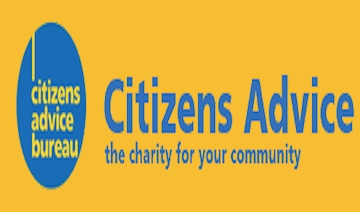Over 23 million people have fallen through the financial advice gap at critical times in their lives, a report published today has indicated.
Citizens Advice, the national charity, has identified what it described as four kinds of advice gap in its research.
It revealed almost half of the adult population (48 per cent) – over 23 million people – would have taken money advice at different key moments of their lives if they had been offered it.
Gillian Guy, chief executive of Citizens Advice, said: “Big life changes can have big financial consequences. Having a baby, moving jobs or losing a partner can have a huge impact on people’s finances. They may have to cover more costs, face higher bills or have to cope with a reduced income.
“As it stands too many people aren’t getting the money advice, support and guidance they need at key moments in their life such as when they buy a house or have a baby.”
The Citizens Advice report highlighted the number of people who would accept money advice available at various key life stages:
● 35 per cent when they start working or change jobs.
● 28 per cent when buying a home.
● 37 per cent when going through a divorce or separation.
● 44 per cent when seriously ill.
● 38 per cent after a bereavement.
The report suggested there were multiple advice gaps, rather than the traditional one, which is often debated.
Firstly, the ‘preventative advice gap’, whereby people would appreciate advice and help with their financial circumstances during big changes in their life but it isn’t presented to them.
Researchers said this meant, for instance, while two in five people (39 per cent) said that they would have taken money advice when they were having a baby, only one in seven (14 per cent) were offered it.
Ms Guy said: “Money advice can be vital to make sure people can make the right financial decisions now in order to avoid money problems in the future.
“The Financial Advice Market Review offers a real opportunity to ensure the money advice landscape is able to deliver this but to be successful the review needs to start and end with consumers’ needs. Price is part of the debate but so too is making sure consumers can easily move and be referred between different advice services, know the services that are available and can access them as and when they need them.”
The report identifies the three other advice gaps as:
• Affordable advice gap: consumers who are willing to pay for money advice but not at current prices for the services on offer. The new report suggests 5.4 million people would consider paying for money advice if it cost less.
• Awareness and referral gap: people who are unaware money advice exists, the different services available or how to access it. Over three million people said they needed free money advice in the last 2 years and failed to get it because they didn’t know it existed or where to find it.
• Free advice gap: people who would benefit from money advice but are unable to pay for it. Many households are not in the position to pay for advice with 49 per cent of households having a net financial wealth of less than £5,000.

